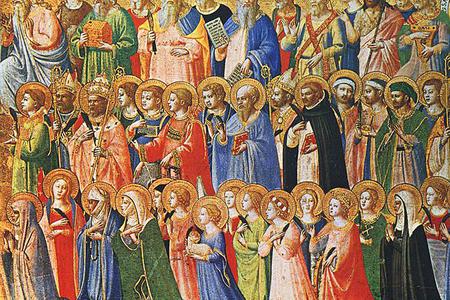
This is one of the bigger contentions between Catholics and Protestants. Many protestants hold the opinion that praying to the saints or anyone other than Jesus is idolatry. Firstly we have to understand the difference in context. Just to add a disclaimer. This is not meant to be a defense but an explanation. However, it does contain a surface defense. If you would like to see me respond to a specific argument please submit a question through our contact form.
There are two important types of reverence in Catholic theology. They are Dulia and Latria.
Dulia is a type of respect which can be rightly given to the creation. This is not the same as worship. In the context of dulia we respect the creation and the ways in which they for lack of a better term channeled the glory of the creator. Take St. Padre Pio for example who was well known for his piety and charity. We recognize that this was not simply St. Padre Pio being a nice person. He was participating in God’s grace and channeling his glory. It is only due to God however that he achieved such greatness. So, we pray to the saints to ask them to pray for us. However, we recognize that even though the saints are interceding for us it is not ultimately the saints producing the fruits of prayer but God.
I want to preface these next sentences by saying this isn’t making any statement about the reality of prayers. Rather I am trying to better explain the relation between God and the saints in prayer. If you want a pizza you can go directly to the pizza restaurant(God) and order a pizza. You could also order the pizza through an app(Saints). Even though we convey our order to the app it is ultimately the pizza restaurant who fulfills the order.
Dulia is the worship due to the creator alone. In dulia there is a recognition that the subject of worship is that through which all good is sourced. The subject of dulia in the case of Catholicism is God.
A Lot of protestants argue against dulia citing 1 Timothy 2:5 where it says “For there is one God, and one mediator of God and men, the man Christ Jesus”. This verse doesn’t exactly work. It makes no statement about praying to those alive or dead other than there being one mediator. Why does 1 Timothy 2:1 claim “I desire therefore, first of all, that supplications, prayers, intercessions, and thanksgivings be made for all men”?. Is St. Paul telling men to intercede for each other and going back on his request less than a chapter later? No.
As the Douay Rheims commentary of 1 Timothy states “He is also the only mediator, who stands in need of no other to recommend his petitions to the Father. But this is not against our seeking the prayers and intercession, as well of the faithful upon earth, as of the saints and angels in heaven, for obtaining mercy, grace, and salvation, through Jesus Christ. As St. Paul himself often desired the help of the prayers of the faithful, without any injury to the mediatorship of Jesus Christ.” There is a major difference between Christ’s mediation and the saints. Christ fulfills prayer through his own power. Saints do not fulfill prayer but rather offer them up to God. “And the smoke of the incense of the prayers of the saints ascended up before God from the hand of the angel.”
Doesn’t the bible tell us not to speak to the dead though? This is a question about the prohibition against mediums and necromancy in Deuteronomy 18:10-11. “Neither let there be found among you any one that shall expiate his son or daughter, making them to pass through the fire: or that consulteth soothsayers, or observeth dreams and omens, neither let there be any wizard, Nor charmer, nor any one that consulteth pythonic spirits, or fortune tellers, or that seeketh the truth from the dead.”This is arguing that you shall not turn to the dead to obtain knowledge beyond human power. However, when we pray to the saints we are not trying to obtain knowledge from them but requesting their intercession. No knowledge is transmitted to us.
Aren’t the saints asleep though? This is a question of the theory of soul sleep. Protestants will use Daniel 12:2 and 1 Corinthians 15:51 to support this theory. However, these verses are using phenomenological language. That is it is describing the appearance and not the actuality. In the book of Luke Jesus tells the thief on the cross “Amen I say to thee, this day thou shalt be with me in paradise.”². Either the thief is some kind of exception in which case what reason is there to believe such an exception exists or the saints are alive in Heaven.
¹Revalations 8:4
²Luke 23:43
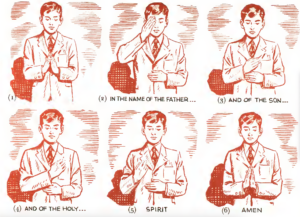
 First Sorrow: Mary Hears the prophecy of Simeon in the Temple
First Sorrow: Mary Hears the prophecy of Simeon in the Temple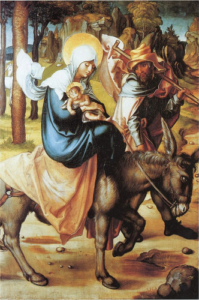 Second Sorrow: Mary flees with Joseph into Egypt to save Jesus
Second Sorrow: Mary flees with Joseph into Egypt to save Jesus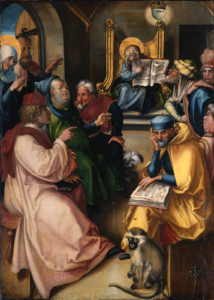 Third Sorrow: Mary loses Jesus and finds Him again in the Temple
Third Sorrow: Mary loses Jesus and finds Him again in the Temple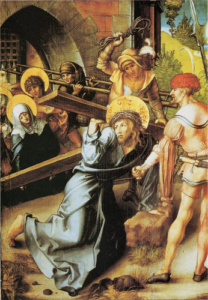 Fourth Sorrow: Mary meets Jesus carrying the cross on the way to Calvary
Fourth Sorrow: Mary meets Jesus carrying the cross on the way to Calvary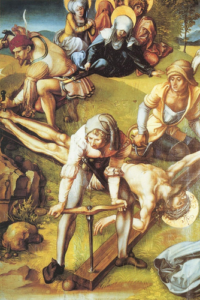 Fifth Sorrow: Mary is present at the Crucifixion and Death of Jesus
Fifth Sorrow: Mary is present at the Crucifixion and Death of Jesus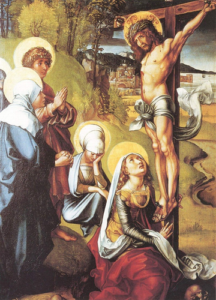 Sixth Sorrow: Mary receives the dead body of Jesus in her arms
Sixth Sorrow: Mary receives the dead body of Jesus in her arms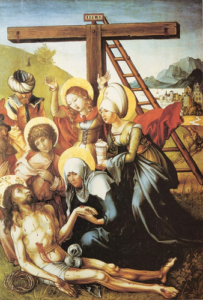 Seventh Sorrow: Mary accompanies Jesus to His Burial
Seventh Sorrow: Mary accompanies Jesus to His Burial
Dresmjili has some of the best graphics and sound effects. Addictive gameplay and big win potential! Really love it so far! Take a look: dresmjili
Q8Bet looks interesting. I wonder if there’s any relationship with any Qatari investments in sports! Anyway the site is smooth enough. Will check how’s their sports promotions and compare it with others. Worth a look: q8bet
A23 Games, cool! I love a good game. Always looking for something new and fun to keep me entertained. Hope they got some good ones! Check their website at a23 games.
Mxwin27 is worth a look. There’s plenty to do to keep me busy! I like that the site is well set up. I’m hoping to have a nice win soon. mxwin27